Nothing is more frustrating than garden enemies and pests destroying everything you have worked for. However, it’s more common than you think. Numerous types of pests exist, and they can quickly ruin a great garden.
You might find that pests come at certain times of the year or that you have several different garden enemies you need to get rid of all at once. Whatever you’re going through, we understand the frustration, and we’re here to help you control these pests.
1. How to Get Rid of Rabbits in Your Yard
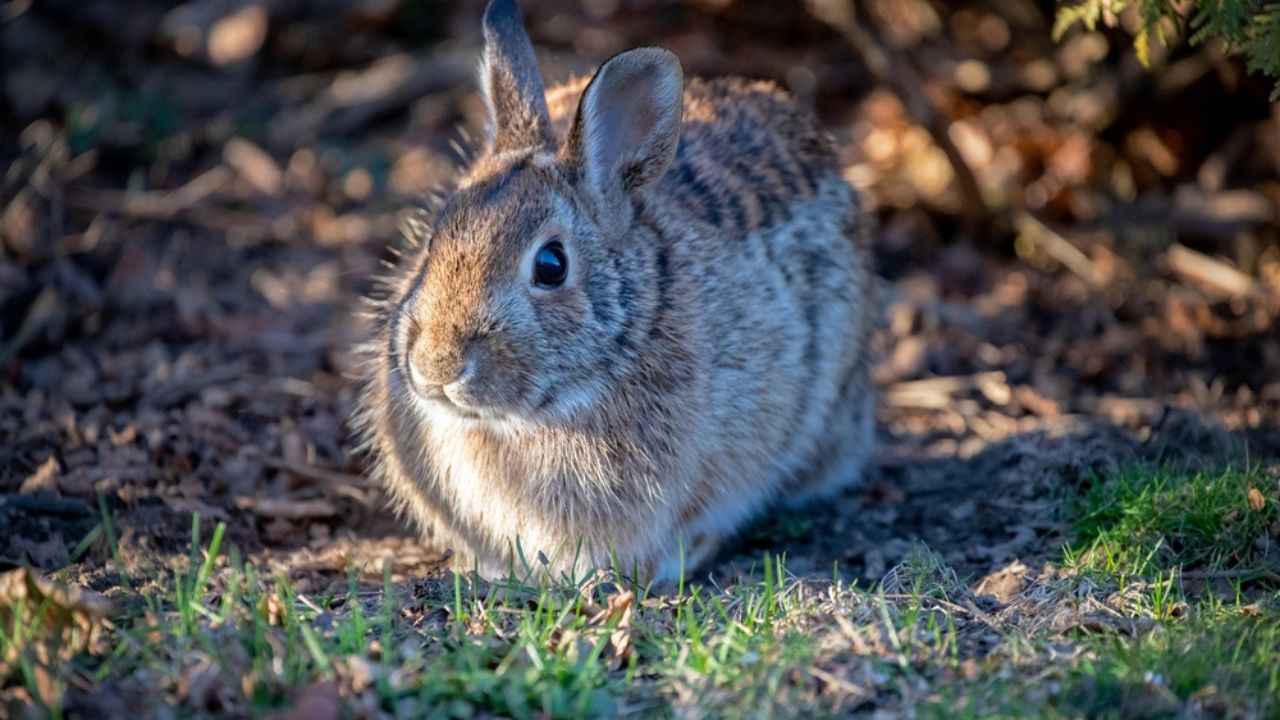
Image Credit: Shutterstock.
Rabbits can be cute and cuddly until they chew up your favorite plants or vegetables.
The best and most humane way to keep rabbits out of your garden is to build a protective barrier with chicken wire with one-inch or smaller mesh (so they can’t get through). You need it to be at least 2 feet high to keep them from jumping over it, and about three to six inches deep in the soil so they don’t burrow under it. You should bend the buried portion away from your plantings to avoid damaging the roots.
You can also use a homemade rabbit repellent made with items in your pantry.
2. How to Get Rid of Groundhogs from Your Garden
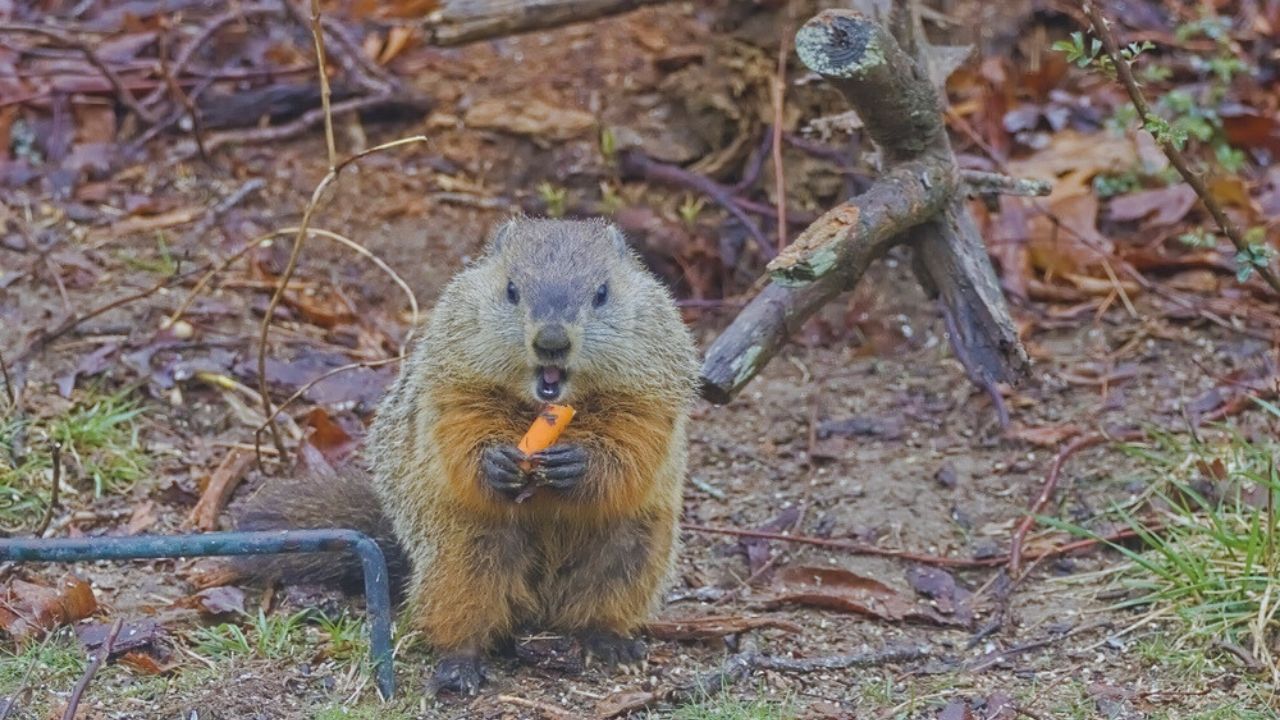
Image Credit: Shutterstock.
If you have groundhogs in your garden, you know what a pest they can be. They can also be challenging to eliminate if you don’t know what to do.
Having groundhog trouble in your garden can be a nightmare. They eat huge amounts of vegetables, and their burrowing can destroy roots and even undermine the structure of homes and buildings. They’ve even been known to attack small children and pets at times. So, what can you do?
Ultrasonic devices don’t seem to work on them, and few other things will work. However, fencing can keep them out if done correctly. You need sturdy 6-foot-high animal fencing to prevent burrowing. You can do this by digging a 2-foot trench around the area. Stuff two feet of the fence down in this trench. They won’t dig deeper than that. Then, you’ll leave three feet above the ground. However, since we said 6-foot fences, you will bend that final foot at the top. When the groundhog realizes he can’t dig under your fence, he will try to climb it, but the bent portion will deter him. Then, he’ll find some other garden to pester.
3. How to Get Rid of Moles and Voles in the Garden

Image Credit: Shutterstock.
Moles and voles are annoying burrowing animals that can destroy a garden if you don’t take the proper steps to prevent it.
One way to get rid of moles is to trap them using a mole trap in their existing active tunnel. Voles and shrews can be trapped with an outdoor mouse trap.
If you have moles in your garden, it’s probably because you’re giving them a food source. You may have an overabundance of grubs and bugs in your garden. Here’s how to get rid of grubs to deter the moles.
Another home remedy is to sprinkle coffee grounds on the soil to prevent them from tunneling.
4. Deer Have No Respect for Your Beautiful Flowers
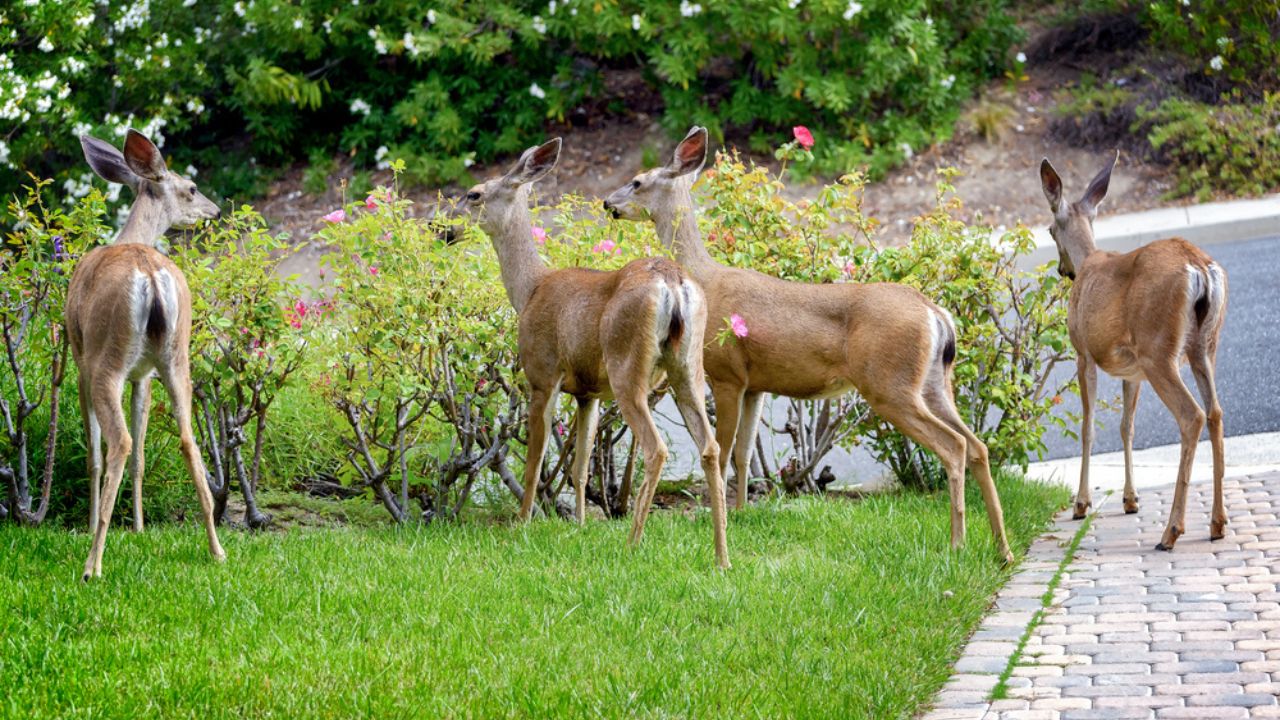
Image Credit: Shutterstock.
Deer are pretty to look at and fun to watch, but they can destroy your garden. A physical barrier, like a fence or cover, is the best way to keep them out.
Another natural deterrent that won’t poison your garden is to sprinkle soap around new plants and the garden. It lasts about a month, but rain and other weather can wash it away, and you’ll have to reapply.
You can also try spraying something with an unpleasant smell. Deer don’t like this, and they’ll run away.
How to stop deer from eating hydrangeas (other plants too)
If you live in deer country like we do, plant shrubs or flowers they don’t like:
5. Ways to Get Rid of Slugs and Snails from the Garden

Image Credit: Matthew T Rader- CC BY-SA 4.0/Wiki Commons.
Snails and slugs love gardens and will wreak havoc on your plants. Here are some natural solutions:
- Diatomaceous earth
- Sprinkle crushed eggshells in the garden
- Mix some chopped mint into the soil
- Plant rosemary or thyme bushes nearby
How to get rid of slugs and snails in the garden
6. Getting Rid of Squirrels
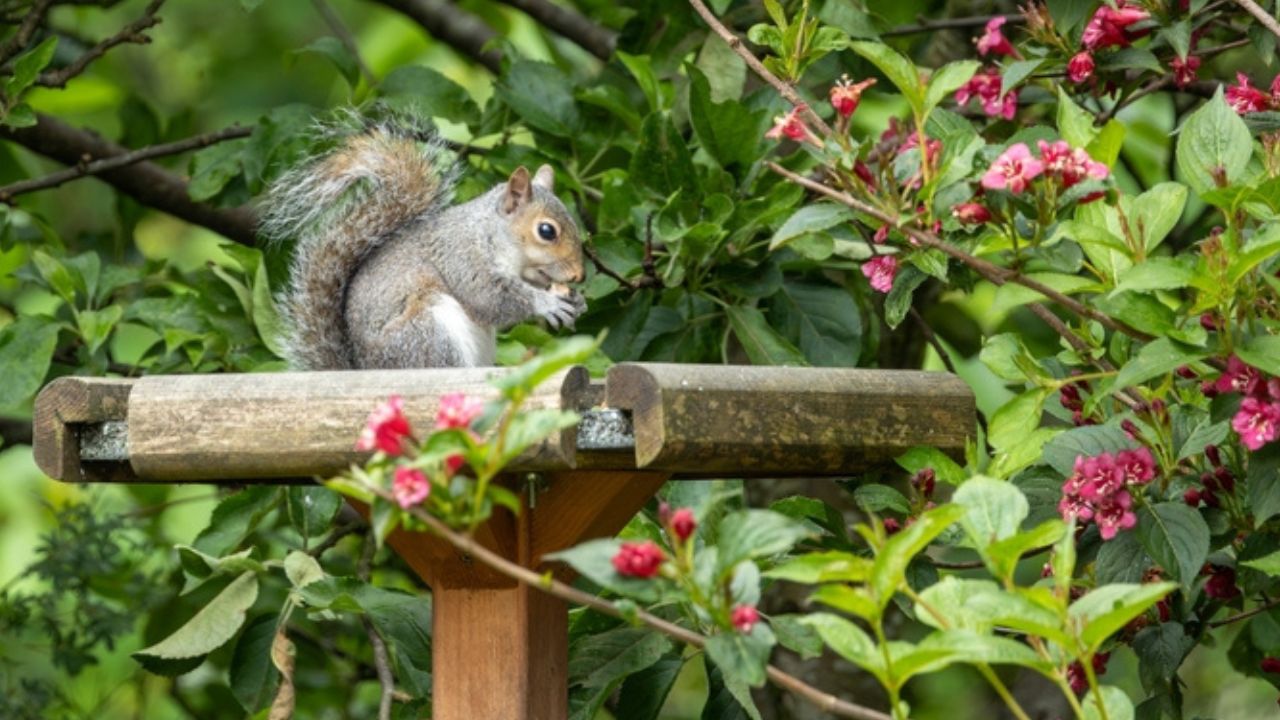
Image Credit: Shutterstock.
Squirrels may look cute and cuddly, but they can be a pain in your garden. They destroy everything in sight. You can try to deter them by removing whatever attracts them (such as fallen fruit, nuts, and seeds).
If squirrels love your bird feeders (and they all do!), here’s how to squirrel proof them.
You can also repel them with squirrel repellent (found online or in a gardening store).
People with dogs and cats also find that they often help scare squirrels away. Here’s a list of ways to keep squirrels out of your garden.
7. How to Stop Birds Eating Your Garden
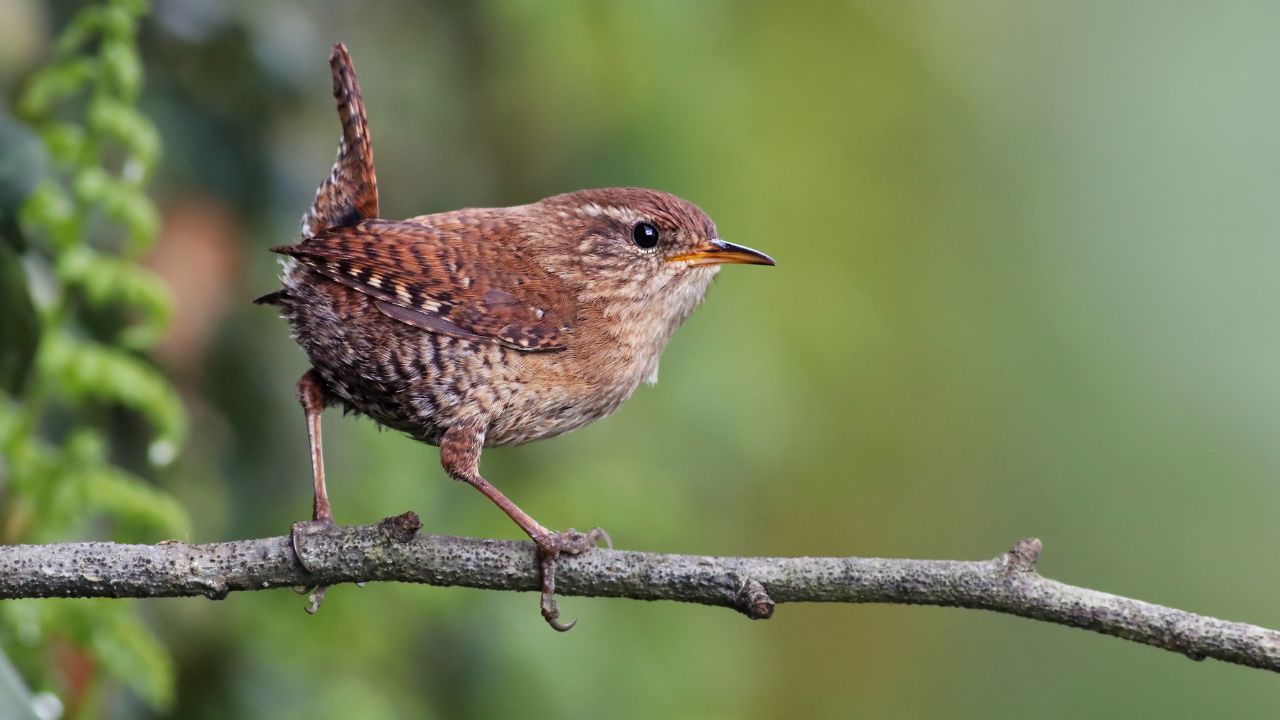
Image Credit: Shutterstock.
When your garden produce is getting ripe, birds will always be attracted to your berries and veggies. Birds will often come over for lunch, and it can be very damaging to your garden.
What can you do to keep the birds away? It’s an old-fashioned tactic, but many people still swear by a good scarecrow. You can even use a scarecrow sprinkler or a piece of scare tape.
Another great option is to put netting around your entire garden so that the birds cannot get in.
8. Stop the Japanese Beetles From Destroying Your Plants
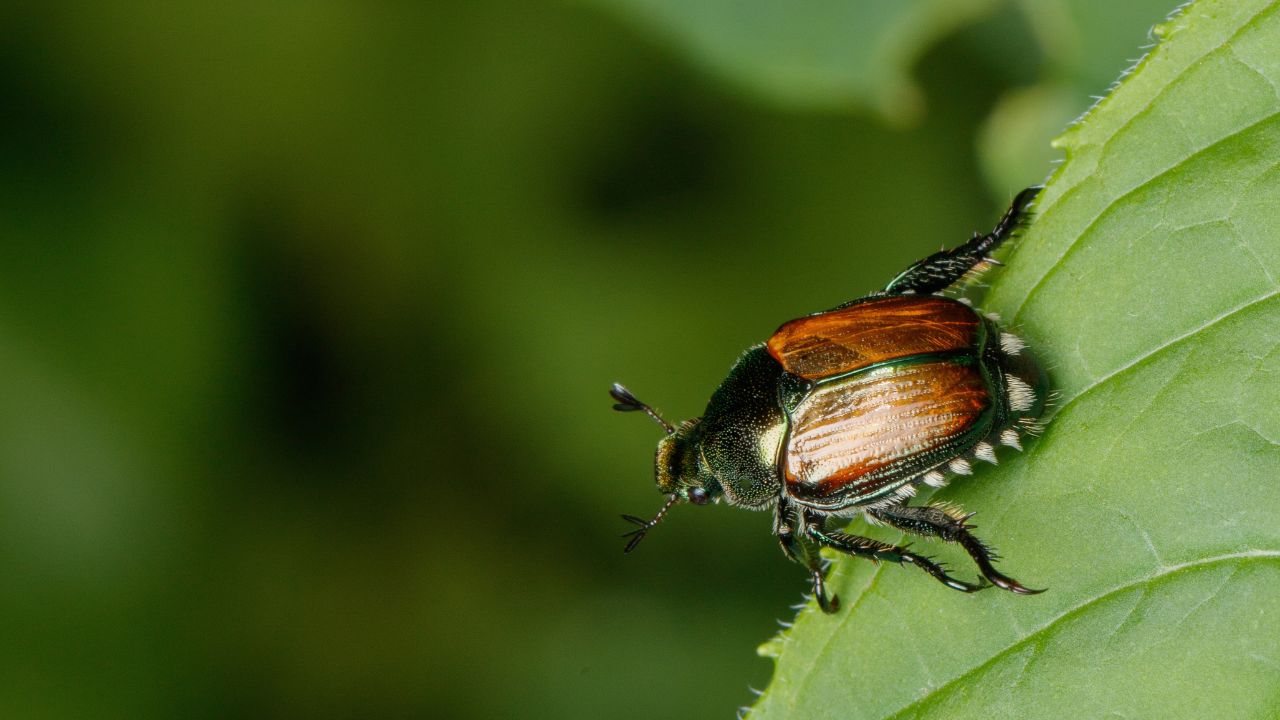
Image Credit: Shutterstock.
Oh, the horror! These little buggers can destroy your entire garden in just a few days! If you want to keep Japanese beetles out of your garden, you must select plants that they won’t be attracted to.
If that’s not an option, you can do a few things to deter them or eliminate beetles already present. For example, you can protect your plants with row covers during their 6-to-8-week feeding season.
You can also pick them off by hand. It might seem like a lot of work, but it is the only sure way to prevent the damage they cause. Some people have also found Neem oil to be helpful with Japanese beetles.
9. The Best Way to Get Rid of Grasshoppers

Image Credit: Shutterstock.
Grasshoppers can damage your garden, too. You can use a garlic defense repellent or a simple garlic spray.
Dust the plants with flour or introduce beneficial insects to the garden that deter the grasshoppers. You can also use semaspore bait around high-traffic grasshopper areas.
10. How to Get Rid of Chipmunks

Image Credit: Paul Harrison – Own work, CC BY-SA 4.0/Wiki Commons.
Usually, chipmunks eat seeds, berries, nuts, and insects they find on the ground, but sometimes they will also eat flowering plants or other plants in your garden when it’s an easy food source.
You can try fencing them out, but this isn’t always effective since they can climb or dig under the fence.
Spices like cayenne pepper or chili powder around the garden can deter and trap them.
11. Natural Ways to Get Rid of Ants in the Garden

Image Credit: Shutterstock.
One way to get ants out of your garden is to make a mixture of 3 cups of water, 1 cup of sugar, and 4 teaspoons of boric acid. Don’t use more boric acid, or the ants will die immediately. Instead, you want them to take this poisonous treat back to their main colony and kill them all.
You can also purchase a garden-safe insecticidal soap to kill the ants in your garden.
12. How to Prevent Tomato Worms (Hornworms)

Image Credit: Max Wahrhaftig- CC BY-SA 3.0/Wiki Commons.
Tomato worms are little green caterpillars that eat tomatoes and can be very destructive. They are found all over the United States and feed on peppers, potatoes, eggplants, and other green foliage.
Handpicking them is one way to get rid of these pests. They don’t bite or sting and are not dangerous to touch. If the population is too large to handpick them off, you might try an insecticide.
You can also plant dill and basil around your tomatoes for natural control.
Also, there’s a type of wasp that lays eggs on the hornworms, and once they hatch, they feed on them, killing them slowly (see the image above for how this looks).
13. How to Keep Dogs Out of the Flower Garden

Image Credit: Shutterstock.
If you’re having trouble with dogs (yours or the neighbor’s) getting into your flower beds or garden, there are a few things you can do:
- Line the garden with some spices: dogs don’t like the smell, and they will stay away
- Dogs also dislike bitter stuff, so oranges and coffee are a good choice
- Use a dog and cat repellent
14. How to Keep Weeds and Other Harmful Plants Under Control
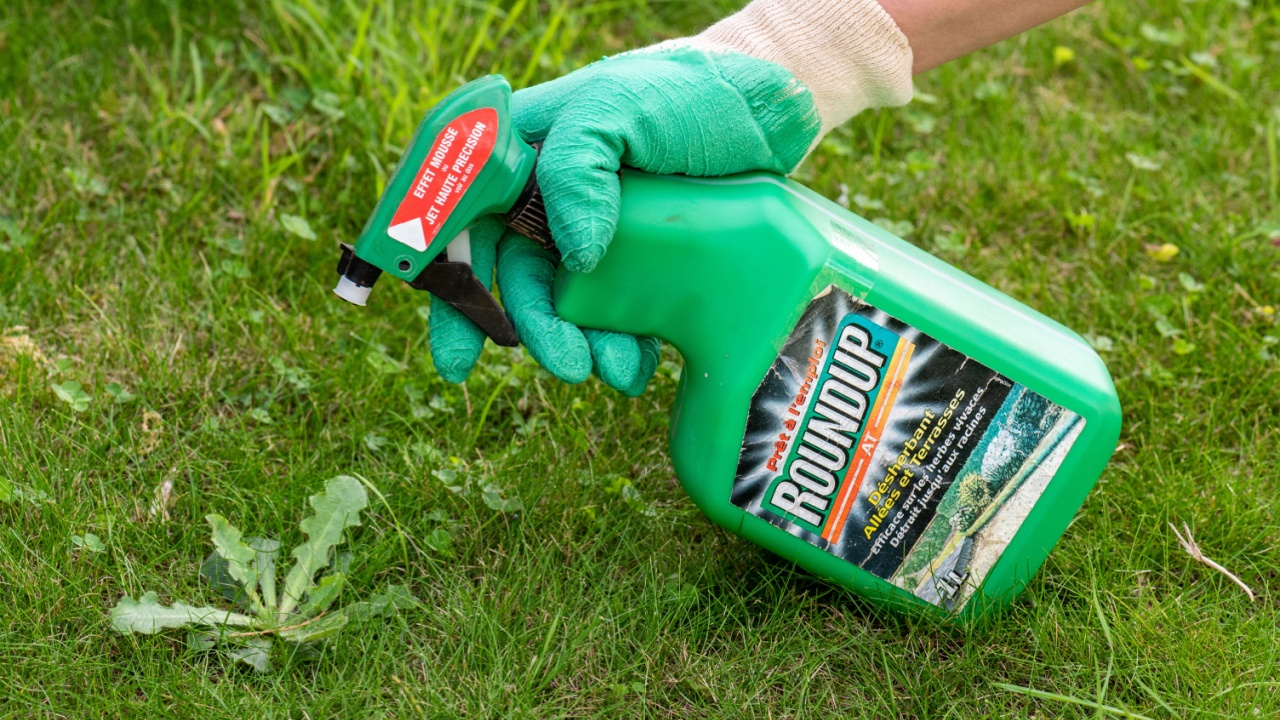
Image Credit: Pixavril at Shutterstock.
If you don’t mind using chemicals in your garden, the easiest way to eliminate weeds is to use a chemical weed killer or preventer.
If you’re looking for a more natural way to keep these harmful plants out of your garden, you can use homemade herbicides. Vinegar is a popular choice, as is sodium chloride.
I personally don’t like using chemicals, so I do a lot of it by hand. It’s hard work, but worth it. Another way to keep the weeds out of the garden is to start with a weed barrier before you plant. If you have poison ivy or oak, here’s how to remove them safely.
15. How to Keep Your Garden Alive During Hot, Dry Spells
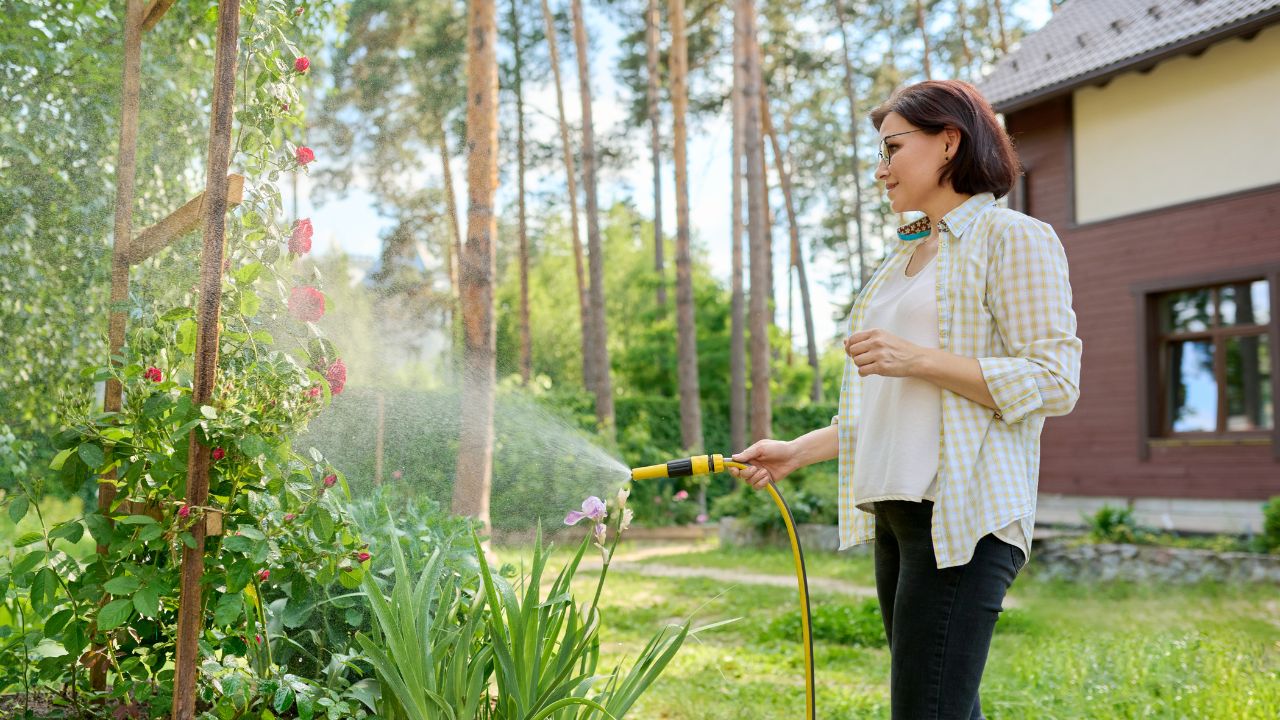
Image Credit: Shutterstock.
When you’re suffering from a very hot summer or drought conditions, your garden will also suffer. It can be difficult to keep a garden thriving when the weather is not cooperative. However challenging, it isn’t impossible.
You can water more and treat the soil to better hold in moisture. For example, you can use organic mulch, pine needles, or finely ground bark to keep the moisture in the ground as long as possible, so it doesn’t dry out.
During hot and dry weather, water for longer periods of time so that the water runs deep to the roots rather than superficially. You should also try to avoid wetting the leaves whenever possible, as this increases disease risk.
16. How to Keep Gardening When Your Health is Not the Best

Image Credit: Shutterstock.
If you have personal health problems that make it difficult to upkeep your garden, does this mean you just can’t have one? Not at all! You should do what you can when you can, or change your garden to accommodate your personal health needs.
Maybe you can try indoor or container gardening instead, or maybe you have a good friend or family member who can help you when you cannot do certain tasks. You still get to keep your garden, but when your health gets you down, you will have someone to tend to it on your behalf.
Also, check gardening for people with disabilities for ideas on adaptive equipment and hacks for all abilities.
I hope these tips will help you with whatever garden pests you’re dealing with.



Common Tomato Plant Problems (and How To Fix Them)
Friday 13th of January 2023
[…] Learn more about keeping unwanted creatures out of the garden. […]
The Ultimate Guide To Natural Garden Pest Control
Wednesday 5th of June 2019
[…] brings out the bugs. UGH… not nice! There’s no reason to reach out for toxic methods to get rid of these garden enemies. Just use one or more of these natural garden pest control […]
10 Spring Gardening Tips For A Healthy Garden
Tuesday 26th of March 2019
[…] is very disheartening to find a herd of deer standing out and munching on what you had planned for dinner. If you have a fence around your garden, make sure there are no […]
Common Gardening Problems With Super Simple Solutions
Thursday 2nd of August 2018
[…] my favorite method is water, boric acid and sugar: it always works! Check out my recipe for killing ants with boric acid once and for […]
Sandi
Wednesday 14th of March 2018
Thank you for me all the great information but do you know any way of repelling chickens. Last year they destroyed my garden!
ILoveGardening
Thursday 15th of March 2018
I'm not sure i understand. If you have chicken, just keep them in a fenced chicken area.